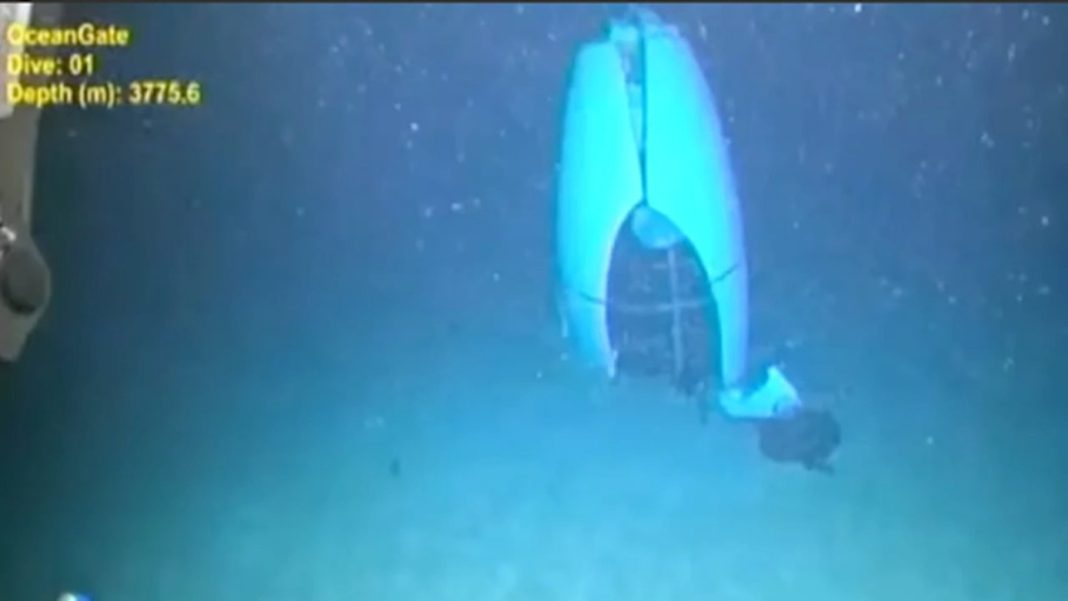In a chilling account that underscores the perils of deep-sea exploration, Steven Ross, a marine scientist and former scientific director for OceanGate, detailed a series of alarming malfunctions experienced by the Titan submersible prior to its catastrophic implosion in June 2023. This testimony, delivered during a recent hearing, sheds light not just on the final moments of the ill-fated dive but also raises significant questions about the vessel’s safety protocols and operational oversight.
On June 12, 2023, the Titan embarked on its fourth mission to the Titanic wreck site, approximately 460 miles from the coast. Under the command of Stockton Rush, the founder and CEO of OceanGate, the dive was intended to be another thrilling venture into the depths of the Atlantic. However, just six days before the tragic incident that claimed the lives of all five people on board, Ross recounted a harrowing experience during Dive 87. A malfunction related to the submersible’s variable ballast tank—responsible for regulating buoyancy—forced the crew to abort their dive after experiencing a violent jolt that sent passengers tumbling.
“The pilot crashed into the rear bulkhead, the rest of the passengers tumbled about,” Ross recalled, painting a vivid picture of chaos inside the submersible. Although no one was injured, the incident highlighted critical flaws in the vessel’s design and operational management. Ross noted that the malfunction took considerable time to correct, prompting the crew to resurface and address the issue. This delay raises an important question: why was there a lack of immediate inspection protocols following such a significant operational failure?
Adding to the concerns surrounding the Titan’s safety, Ross revealed that the submersible had not undergone inspection by the United States Coast Guard in 2021, 2022, or 2023, a glaring oversight for a vessel engaged in high-risk exploration. The absence of regular inspections can have dire consequences, especially in an industry where the stakes are extraordinarily high. The Coast Guard’s role in ensuring the safety of such operations cannot be overstated, and this lapse in oversight could potentially have been a critical factor leading to the tragedy that followed.
Ross also recounted previous incidents from the 2022 Titanic expedition, including a loud bang that was theorized to be a shifting of the pressure hull. Such auditory anomalies in deep-sea environments can indicate severe structural issues, and the absence of rigorous post-dive assessments raises further red flags about the Titan’s operational protocols. Additionally, during Dive 81, a malfunction of the thrusters forced the pilot, Scott Griffith, to operate controls that were inadvertently reversed, a mistake that could have had catastrophic implications at depths where every action counts.
Before the Titan’s ill-fated fourth mission, Ross mentioned an incident where the submersible “snagged an obstruction while being towed at night,” likely caused by abandoned fishing gear. While the crew assumed no damage was done, the lack of conclusive results from this event further emphasizes the need for thorough pre-dive inspections and risk assessments.
The tragedy of the Titan submersible serves as a stark reminder of the inherent dangers associated with deep-sea exploration. As marine expeditions continue to captivate public interest, the need for stringent safety protocols must be prioritized to prevent future catastrophes. Experts in marine safety advocate for the implementation of comprehensive risk management strategies, including regular inspections and rigorous crew training, to ensure that adventurers can explore the ocean’s depths without sacrificing their safety.
In conclusion, the narrative surrounding the Titan’s implosion is not merely about a tragic accident; it is a call to action for the industry. The testimonies and findings presented by individuals like Steven Ross highlight the urgent need for reform in safety practices, oversight measures, and technological reliability in deep-sea exploration. As the desire to uncover the mysteries of the ocean persists, so must our commitment to safeguarding those who dare to venture into its depths.

